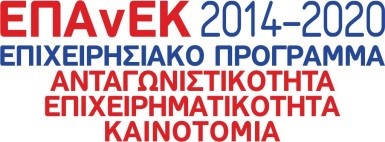GENERAL INFORMATION
Epidemiological study in Greece through extensive testing for virus and antibody detection, viral genome sequencing and genetic analysis of patients.
The evolving pandemic caused by the new SARS-CoV-2 virus continues to be a major global public health problem. An efficient response to the pandemic includes, among others, developing reliable methods of molecular and immunological detection and characterization of the virus, achieving an adequate description of the epidemiological characteristics of COVID-19, understanding the pathophysiology of the infection, setting therapeutic goals, as well as developing a vaccine and effective antiviral drugs.
In this context, this flagship Action aims at studying the Coronavirus Disease (COVID-19) pandemic in Greece with the following main objectives:
- Development of reliable methods of molecular and immunological detection of the virus with a broad diagnostic applicability;
- Conducting sequencing studies using next- generation sequencing technology in order to understand the molecular evolution of the virus (virome analysis), virus-host interactions and the immune response of the human body to the virus;
- Organizing the collection of biological material from asymptomatic SARS-CoV-2 carriers and COVID-19 patients in order to enable study of the pandemic with the aim of developing innovative diagnostic and therapeutic tools, as well as offer the possibility for future studies;
- Development of clinical databases on the COVID-19 pandemic in Greece;
- Development, modelling and implementation of a methodology for the commercial exploitation and dissemination of new knowledge and the promotion of entrepreneurship with a view to developing validated prediction models and products for clinical use;
- Development of a domestic rapid enzymic immunoassay antigen test (rapid test) for detection of the virus.
The overall impact of the Action is expected to have scientific, social and economic ramifications as a result of the following:
- Promotion of research on SARS-CoV-2 infection and improved visibility of the Greek research community;
- Determination of genetic variations influencing predisposition to the disease and severity of symptoms that could be used as biomarkers to identify high-risk individuals requiring special treatment;
- Practical implementation of the study findings in the fields of medical biotechnology, biomolecular diagnostics and computer science.
Collaborating Organizations:
- National and Kapodistrian University of Athens (UoA), Department of Medicine
- Biomedical Research Foundation (BRFAA) of the Academy of Athens
- Centre for Research and Technology–Hellas (CERTH), Institute of Applied Biosciences (INAB)
- Hellenic Pasteur Institute
- Aristotle University of Thessaloniki (AUTh), School of Medicine
- University of Crete, School of Medicine
- Biomedical Sciences Research Center (BSRC) “Alexander Fleming”
- Foundation for Research and Technology–Hellas (FORTH)
- National Centre for Scientific Research (NCSR) “Demokritos”
- University of Ioannina, School of Medicine

















